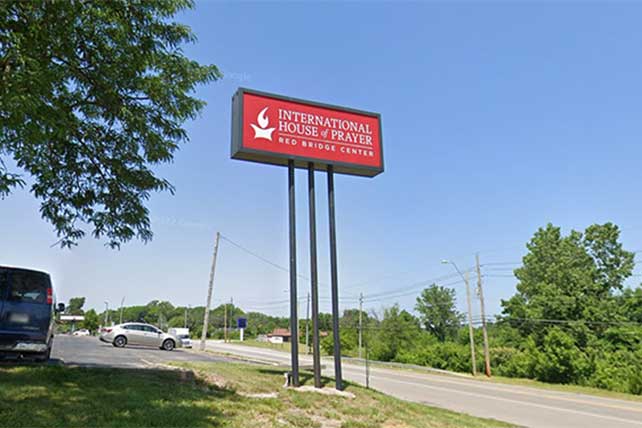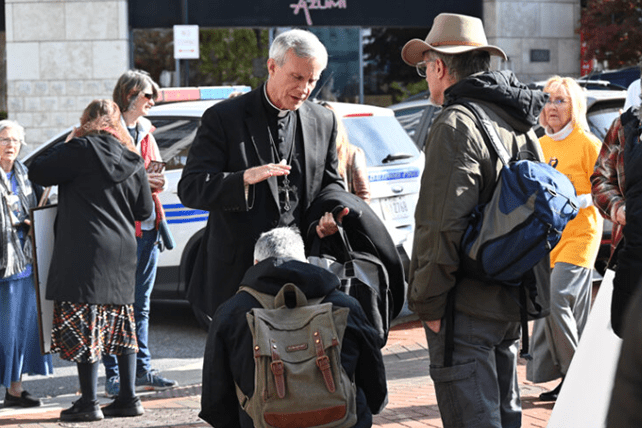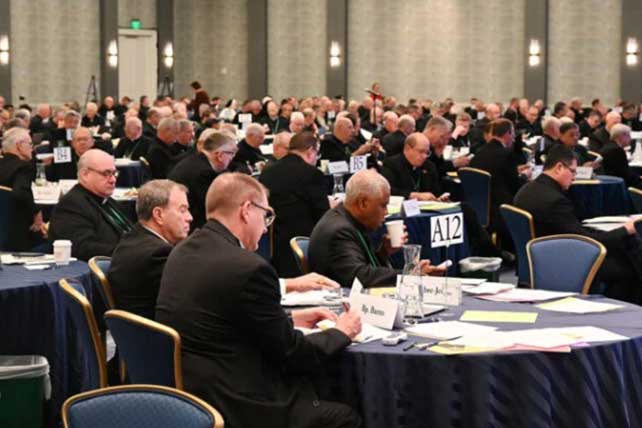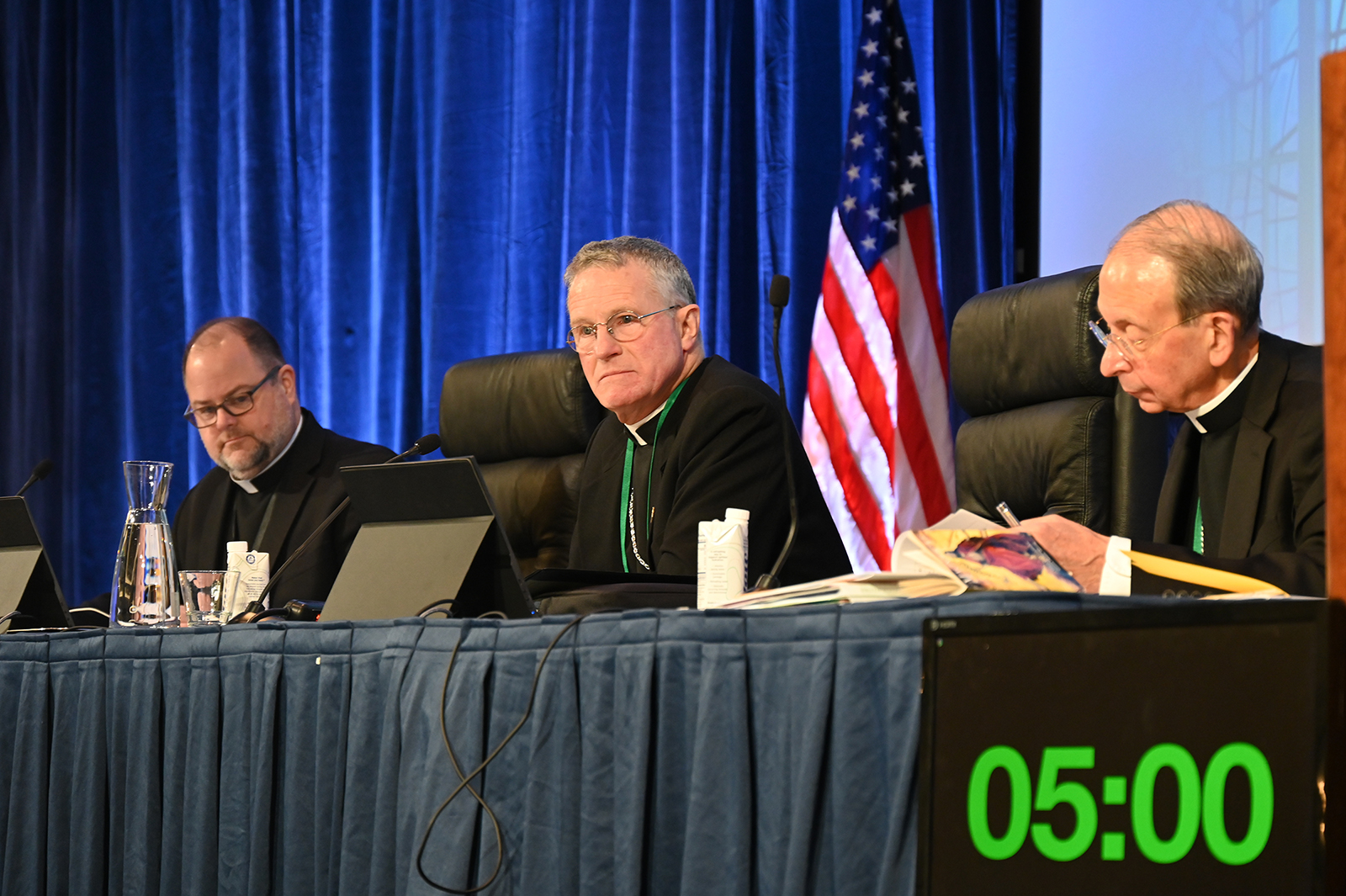Over the years I have had the privilege of knowing, working with and serving under some great Christian leadership. Christian leadership is not always the flashiest; but those I knew all carried a certain gravitas that everyone could sense.
It was this unmistakable aura that drew me in and made me reflect and dissect just what made these particular leaders so distinctive and effective. After years of watching, listening and reflecting, I think I’ve narrowed their christian leadership down to a handful of very specific characteristics.
5 Marks of Great Christian Leadership.
1. Great leaders lead.
Implicit in the word “leader” is the idea of moving with intentionality toward a clear and compelling objective and inspiring others to move with you. A leader has a mission to accomplish and rallies others to work with him/her to accomplish it.
There is no better example of this in ancient history than Jesus. How could a modest carpenter out of nowhere lead a handful of overlooked, underestimated blue collar followers to “make disciples of all nations”? Answer: Leadership!
Jesus inspired his disciples and moved them toward accomplishing a clear objective. Before he ascended into heaven he reminded them of what this mission was (“you will be my witnesses”), where this mission would be carried out (across the street, across the tracks and across the world) and how this mission would be effectively accomplished (“you will receive power after the Holy Spirit comes on you…” Acts 1:8).
The test of christian leadership effectiveness is what happens to his followers when that leader is gone. The amazing thing about Jesus’ ability to lead is that his followers are still carrying out his mission 2,000 years later!
Jesus was a leader who led. And, if you think about it, he is still leading, but now from heaven. In Matthew 16:18 Jesus told Peter, “I will build my church…” The ultimate leader in human history is still leading the charge from the right hand of the Father.
In my lifetime of studying living legend leaders I can’t help but think of former Senator Bill Armstrong. After serving in the Senate he eventually became the President of Colorado Christian University (my alma mater.) When he took over the helm at CCU it had fallen on dark times theologically. The school that I loved was sliding toward a very squishy, doctrinally liberal viewpoint.
But all that changed when President Armstrong took over. He was a leader who led. He didn’t just talk about it. He exemplified it.
Within a few short years he jerked the steering wheel right and got the school back on the path biblically. Not only that, he put the mission of Jesus in the center of the school. He launched “The Year of Evangelism” at CCU and made sure both students and teachers were fully equipped to share their faith.
He turned the ship in a powerful and spectacular way. Colorado Christian University is the school it is today because of the great christian leadership of President Bill Armstrong.
In the last few years before he went to be with the Lord I met with him as much as I could to learn from his christian leadership excellence. I have known several good leaders over my lifetime but Bill Armstrong was a great leader…because he led CCU to follow Jesus!
Great leaders lead.
2. Great leaders model.
In Luke 6:40 Jesus said, “The student is not above the teacher, but everyone who is fully trained will be like their teacher.”
Great leaders live out what they are seeking to teach their followers. They don’t hand out pamphlets to places they’ve never been.
This is especially true of getting teenagers to evangelize. The youth leaders must model it first. As I often tell youth leaders, if your teenagers are not actively share their faith you may need a mirror and not a bullhorn.
One of my best friends on the planet is Dave Gibson. He is a missions pastor at Grace Church in Eden Prairie, Minnesota. But he is more than a missions pastor, he is a legendary leader of the missions movement across the nation and around the globe. He has great favor with the top missions and church-planting organizations. He has more influence in these arenas than anyone else I know of.
But what makes Dave Gibson a great leader is that he lives out his convictions. Wherever he is he shares the Gospel to whomever he happens to be talking to. Whether you go with him into a restaurant or onto a plane or into a gym you can be sure the Gospel will be shared. One of the reasons he has so much influence in the world of missions is because he is a walking, talking example of what it means to be a missionary wherever you are in the world.
If you want to be a great leader then live out your sermon outline. And live it out with authenticity and humility. When you do others will notice and follow your lead..
3. Great leaders pray.
“But Jesus often withdrew to lonely places and prayed.” Luke 5:16
Jesus was always escaping ministry opportunities to pray. He would get up early and go out to pray. He’d climb a mountain and pray. He’d go into a garden and pray. It was during these times of prayer where he got his marching orders from the Father.
Jesus understood that to be a great leader you had to first be a great follower. And Jesus was following the Father’s lead. In John 5:19 Jesus gives us his secret to great leadership, “Very truly I tell you, the Son can do nothing by himself; he can do only what he sees his Father doing, because whatever the Father does the Son also does.”
Jesus used his prayer times to see and sense what the Father was doing…and then follow his lead. We, too, must make time to escape and pray. Whether it’s going on prayer walks with the Father or finding that quiet space in our houses, we must make time to pray!
The greatest Christian leaders I know are the greatest prayer warriors. They start their days in prayer, they sprinkle prayer throughout their days and, when they lay their heads on their pillows at night, they are often communing with God in prayer.
Christian leadership understand that the ultimate leader is God and, without him leading them, their leadership efforts are futile. Prayer is their pipeline for divine wisdom, power and courage.
As E.M. Bounds once said, “What the church needs today is not machinery or better, not new organizations or more and novel methods, but men whom the Holy Spirit can use—men mighty in prayer. The Holy Spirit does not flow through methods, but through men of prayer.” And I might add, through women of prayer.



























